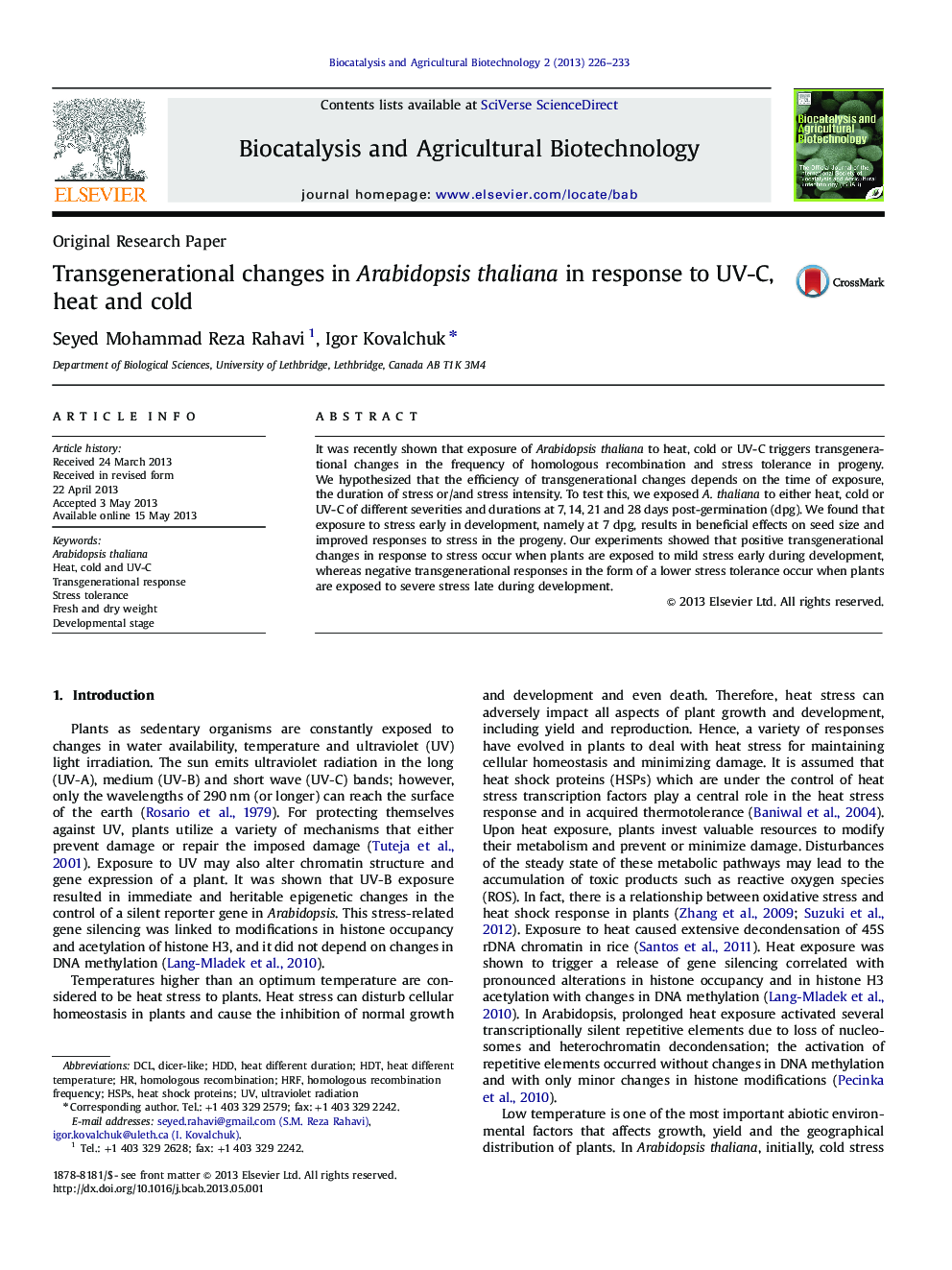| Article ID | Journal | Published Year | Pages | File Type |
|---|---|---|---|---|
| 2075556 | Biocatalysis and Agricultural Biotechnology | 2013 | 8 Pages |
Abstract
It was recently shown that exposure of Arabidopsis thaliana to heat, cold or UV-C triggers transgenerational changes in the frequency of homologous recombination and stress tolerance in progeny. We hypothesized that the efficiency of transgenerational changes depends on the time of exposure, the duration of stress or/and stress intensity. To test this, we exposed A. thaliana to either heat, cold or UV-C of different severities and durations at 7, 14, 21 and 28 days post-germination (dpg). We found that exposure to stress early in development, namely at 7 dpg, results in beneficial effects on seed size and improved responses to stress in the progeny. Our experiments showed that positive transgenerational changes in response to stress occur when plants are exposed to mild stress early during development, whereas negative transgenerational responses in the form of a lower stress tolerance occur when plants are exposed to severe stress late during development.
Keywords
Related Topics
Life Sciences
Agricultural and Biological Sciences
Agricultural and Biological Sciences (General)
Authors
Seyed Mohammad Reza Rahavi, Igor Kovalchuk,
